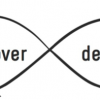lean
 |
Agility Beyond Software: How Agile Principles Drive Success in Other Industries The Manifesto for Agile Software Development, and the 12 Principles of Agile Software were proposed more than 20 years ago, specifically for software development. But the Agile methodologies are not limited in scope to software development—the Agile approach can be used across other sectors as well.
|
|
 |
Agile Leadership: Your Key to Business Success In the article, we will discuss why Agile transformation cannot solely be effective without a truly Agile Leader in the organization. We will cover what essentially is meant by Agile leadership and why there is so much talk about it. Finally, we will figure out how to embrace the Agile leader role and what effective tips and practices can help on this path.
|
|
 |
Value Stream Mapping Gone Wrong Value Stream Mapping is a powerful lean tool that is commonly used in Agile and DevOps implementations as a foundation for continuous improvement and transformation, but its application doesn’t always lead to the expected or desired result. Author Jeff Pierce's article helps you to avoid some of the most common failings companies encounter when they try to implement it.
|
|
 |
Why You Should Be Talking Less Agile and More Flow “Flow,” defined as the movement of business value from customer insight to product delivery, is a fundamental prerequisite to agile success. Surfacing and visualizing the end-to-end workflow is a foundational requirement for enabling companies to master software-based solutions at scale. To take agile forward, you first need visibility into flow through these essential metrics.
|
|
 |
Continuous Process Improvement Using Balance and Flow Finding a balance between too much and too little process can be quite a challenge. Tom Wessel shows how to apply lean change management and kaizen principles to achieve continuous process improvement. Also, Tom suggests the use of simple metrics to verify that improvements are actually taking place.
|
|
 |
The Lean Test Canvas Taking lessons from the lean business model, Matt Heusser explains how a tester can present different values and properly set expectations with the team using the lean test canvas. His approach starts with defining who the customer is and ends with key qualitative measures that will be used to ensure success.
|
|
 |
How Can I Develop the Ability to Collaborate? In this installment of FAQ, SQE Trainer Bob Payne and consultant Ryan Olivett answer one of the questions students ask them most often.
|
|
 |
Strengthen Your Discovery Muscle An organization shouldn’t spend all its time building its delivery muscle without simultaneously building its discovery muscle. In fact, successful software teams deliver great products because they invest in discovery. Learn how to expand your innovation and strengthen your discovery muscle.
|
|
 |
Shifting Left and Going beyond Agile: An Interview with Michael Nauman In this interview, Michael Nauman, a testing lead for AutoCAD Web, explains how we can go beyond basic agile principles. He digs into the current state of shift-left testing, the importance of aligning your DevOps with your automation, and using agile as a starting point on your quality journey.
|
|
 |
The Fundamentals of Agile: An Interview with Jeff Payne
Podcast
In this interview, Coveros CEO and agile instructor Jeff Payne discusses why you should make the move to agile, its many benefits, and how to transition. He also explains his SQE Training course, Fundamentals of Agile Certification.
|
|
 |
STAREAST 2015 Interview with Matt Heusser on Lean Software Testing
Video
In this interview, Matt Heusser covers how most organizations test now, presents ways you can improve your company's approach to lean, and demonstrates lean tools that can help you understand software development and test flow in a different way.
|
|
 |
Better Thinking for Better Software: Thinking Critically about Software Development: An Interview with Laurent Bossavit
Podcast
In this interview, software developer Laurent Bossavit talks about why we need to think more critically about software development. He dispels common misconceptions about the industry and suggests better ways to improve the development process, such as agile and lean methods.
|
|
 |
Pushing Pennies: Playing with the Principles of Product Development Flow
Slideshow
Lean and agile concepts can sometimes be counterintuitive, but the right game or exercise can effectively demonstrate those concepts, providing a practical basis for conversation and learning. Being able to talk beyond anecdote and theory and actually demonstrate why something works is a powerful statement. In this workshop, Bill DeVoe will execute some games you can take back to your organizations to help them understand some basic lean and agile concepts regarding optimization of flow and throughput. Through these activities, we’ll demonstrate the value of a prioritized backlog, optimized batch sizes, limiting work in progress (WIP), and more.
|
Bill DeVoe
|
 |
Lean-Agile Learning through Games
Slideshow
Most agile practitioners first learn agile by reading a book, attending a class, or attending local meetings. But learning lean and agile concepts works best when we're able to put some concrete examples and practice behind the concepts. By adding a set of games and exercises that teach and reinforce lean and agile concepts to our toolboxes, change agents can provide some practical basis for conversations both inside and outside their organizations. In this talk join experienced agile coach Bill DeVoe, as he shares two of his “go to” games. First, up will be The Name Game, a game that reinforces the downsides of multitasking and benefits of completing work. And second will be a modified version of the Scrum Penny Game – a multi-round exercise that demonstrates many lean-agile concepts, like flow, prioritizing value, and delivering small batch sizes over large ones.
|
Bill DeVoe
|
 |
A Lean Tour of Lean Software Development
Slideshow
Lean software development has been described as “better, faster, cheaper” and focused on “eliminating waste,” but those are misnomers. Going after speed improvement and waste elimination can actually reduce the benefits you might otherwise get from lean. Ken Pugh describes what lean...
|
Ken Pugh
|
 |
The Lean Startup Method: Its Value for Testers
Slideshow
A startup is an organization created to deliver a new product or service under conditions of extreme uncertainty. Approximately 40 percent of all startups will cease operation with investors losing everything; 95 percent will fall short of their financial projections. And the number...
|
Lee Copeland
|
Visit Our Other Communities
AgileConnection is a TechWell community.
Through conferences, training, consulting, and online resources, TechWell helps you develop and deliver great software every day.

